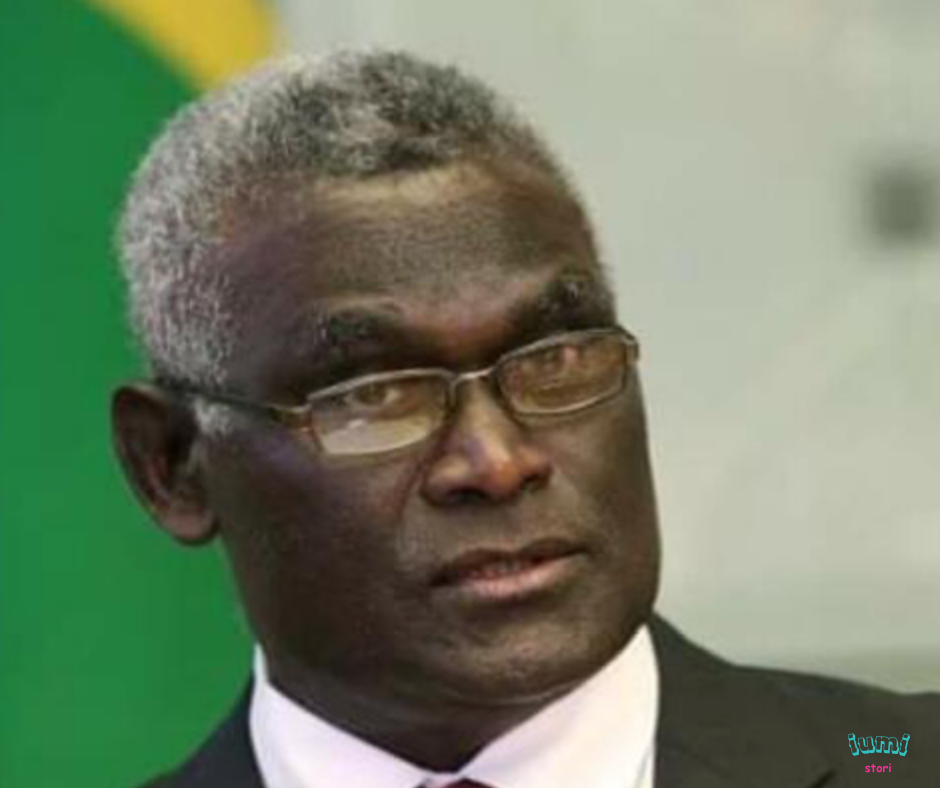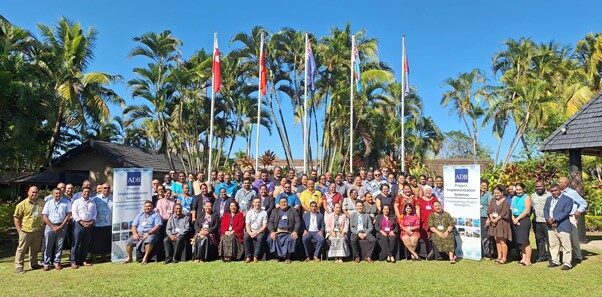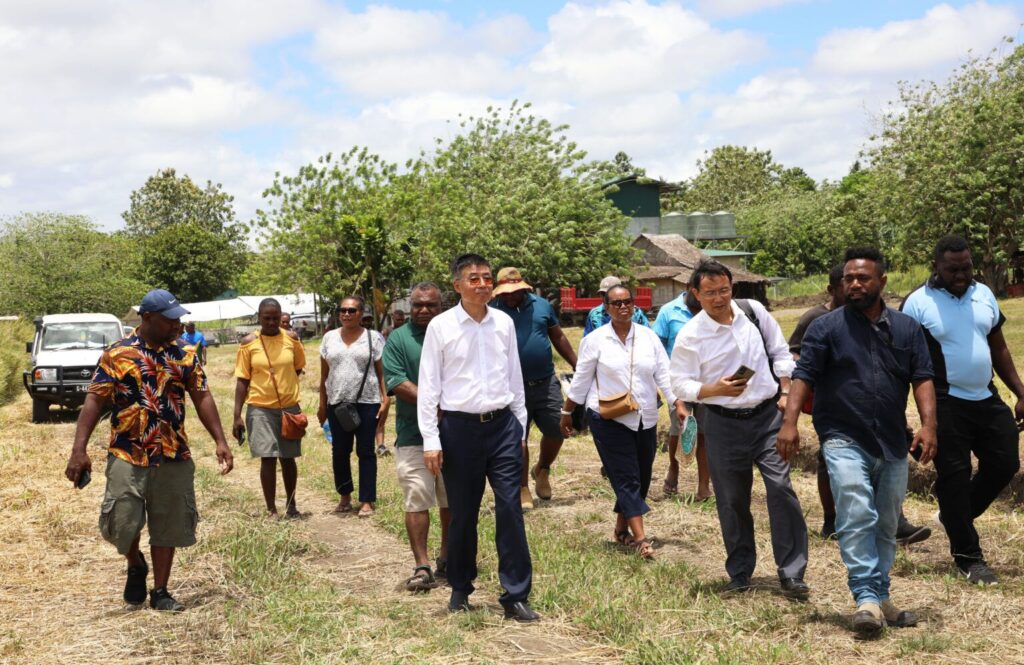
Senior supervisory officials from the Administration and Management Institute (AMI) of the Ministry of Agriculture and Rural Affairs (MARA) of the People’s Republic of China on October 6, 2024, visited SAPE farm in North Guadalcanal.
The MARA team is comprised of YAN Shi, President of AMI, MARA, and LIU Jinping, AMI, MARA Division Director of International Cooperation.
They were accompanied by the Ministry of Rural Development (MRD) Deputy Secretary Corporate, Constance Wane, Deputy Secretary Technical (Acting), George Balairamo, Director Rural Development, Milfred Delemani, Director Extension of the Ministry of Agriculture & Livestock (MAL), Andrew Melanolu, and their respective officers.
Supervising Director of SAPE Farm, Dr. Zimlon Bosawai, while receiving the delegation, briefly talked about the history of the farm—how it all started as an informal sector and evolved into one of the country’s only largest commercial cassava farms.
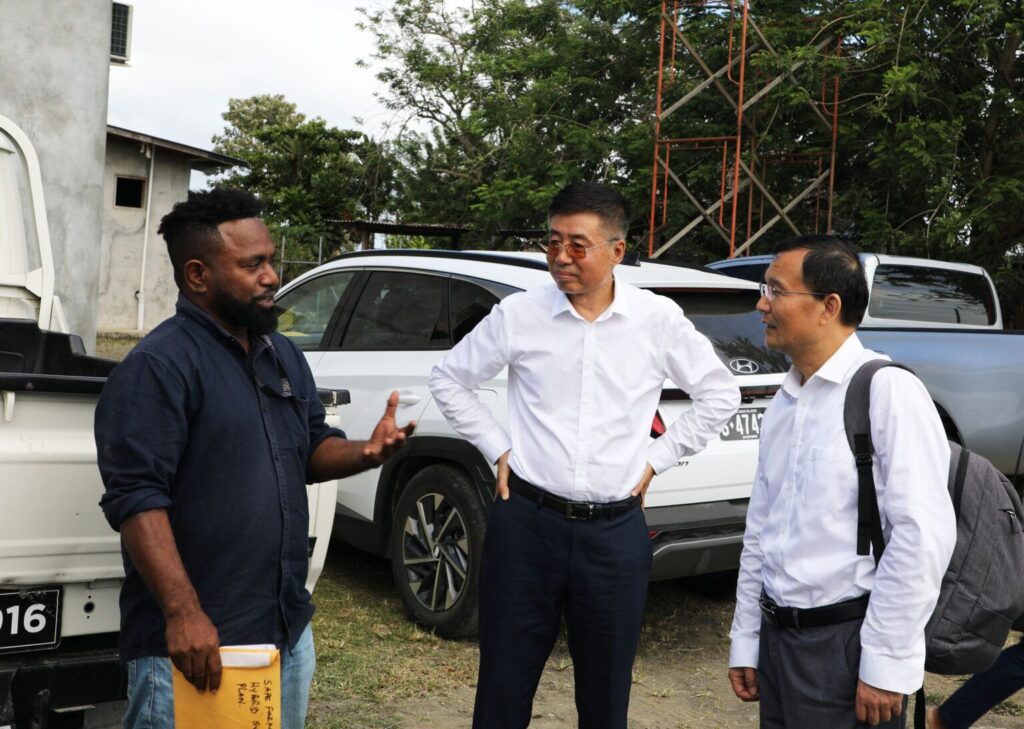
The visit was a success as the team learned about the challenges and achievements of SAPE and its contribution (benefits) to the local communities, national economy, and food security.
The MARA’s President and Director were also briefed on the model in which SAPE is operating, especially farm practices, capacity, products, production, technologies used, and potential for future expansion.
The visiting team was impressed to hear success stories of the farm company and its vision and how it continues to expand its business operations in the country, especially in Guadalcanal and Honiara, despite going through numerous challenges.
The team also took the opportunity and tour the farm’s cassava processing facility (packhouse), which is nearing completion, and took a brief tour through the farm.
Both sides (MARA team and SAPE farm) also exchanged discussions on other potential areas of collaboration during the visit, which included staff capacity building, training, technical support, and areas of research and science innovations to boost productivity.
SAPE Farm is owned by a medical practitioner now turned politician, Dr Paulson Bosawai Popora.
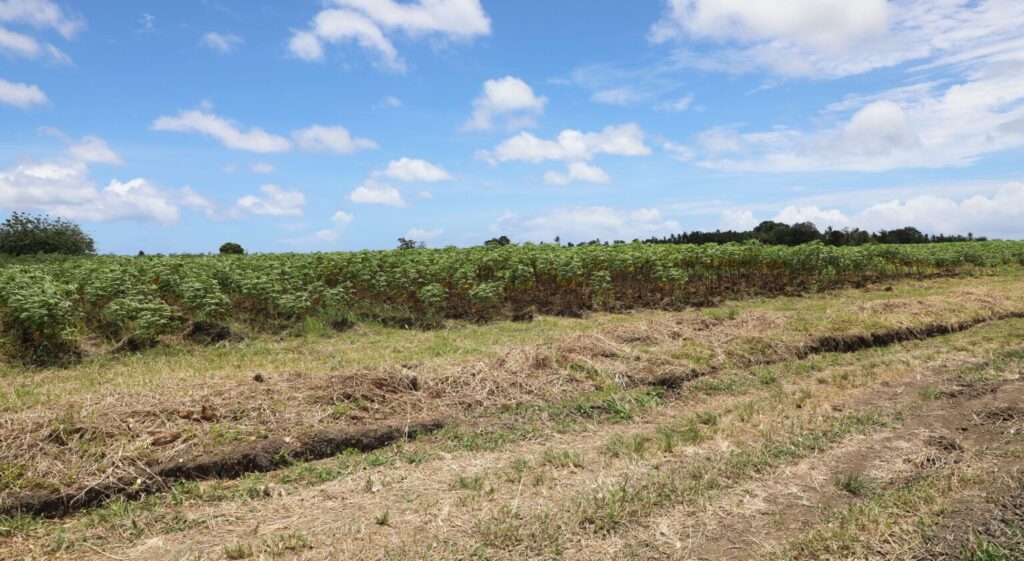
Started as an informal sector in 2017, Sape evolved gradually over the years into a commercial farm. Today, it is the only largest commercial cassava farm the country has ever had, possessing over 100 hectares of land.
As soon as its packhouse processing facility is complete, Sape will process and package cassava into frozen grated and cassava flour for both domestic and export markets.
The Solomon Islands Government and other donor agencies supported Sape’s growth.
Cassava is one of the most important root crops in the Solomon Islands.
Supervising Director of SAPE, Dr. Zimlon Bosawai, expressed appreciation on behalf of Sape and its cassava out-growers for the visit and the opportunity to meet, acknowledging the firm relationship between the Solomon Islands and China and the unremitting support by China towards rural development in the country, especially through agriculture and other sectors.
Dr. Bosawai said such interaction is important as it will open doors for potential opportunities from outside for SAPE, especially through development opportunities, partnerships, and knowledge sharing.
He also recognized MRD for coordinating and facilitating the visit program.
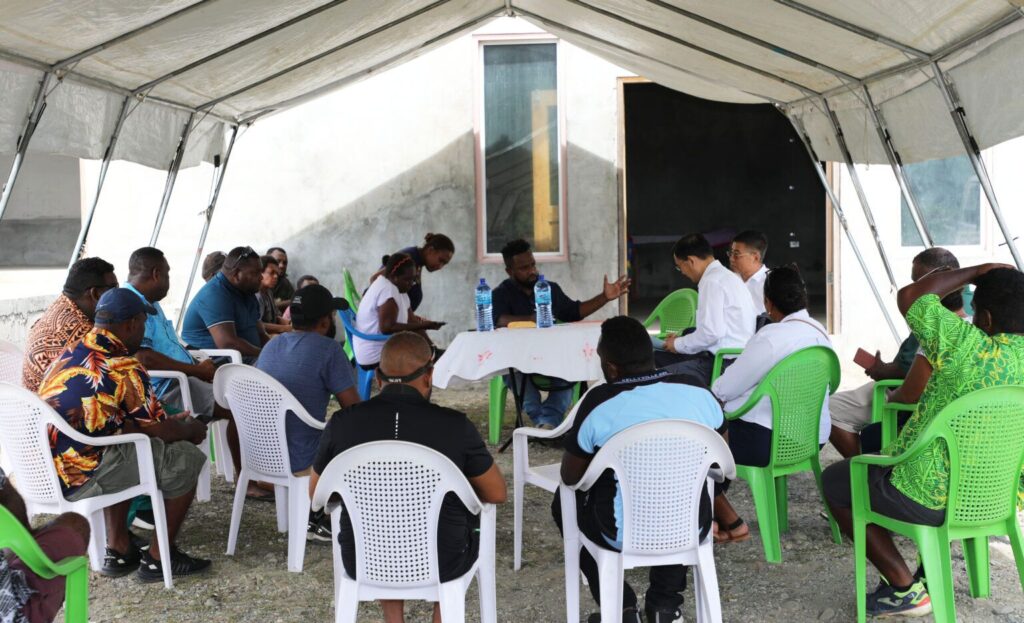
Meanwhile, LIU Jinping, AMI, MARA Division Director of International Cooperation, recognized Dr. Bosawai and his team for availing their time to meet with his team; adding such connections and dialogue is crucial for potential collaboration going forward.
The MARA team also paid a brief visit to the proposed Agriculture Field Experimental Station at the Tenaru site, earmarked for an Agriculture and Livestock research centre, training centre, and pig breeding improvement facility.
They then concluded the one-day tour by visiting the MAL Research Centre at King George Sixth (KG VI).
The visits to the agriculture research centres allow the visiting team to learn about the usual challenges faced by the centres which include budgetary support and staff capacity. Other potential areas of collaboration discussed include training and technical support to boost agriculture research in the country.
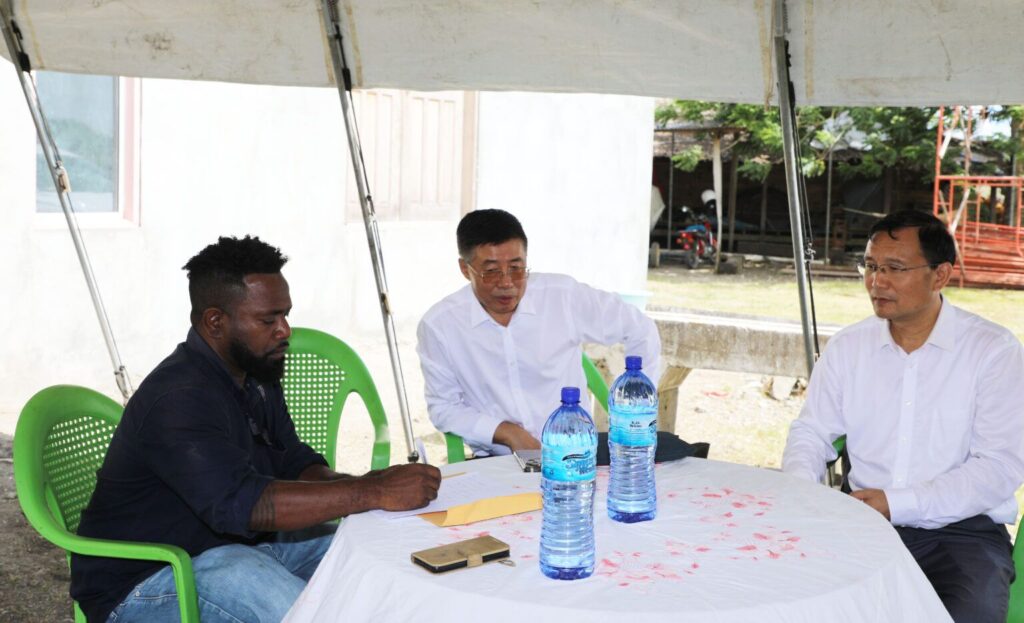
The MARA officials were in the country from 4th–7th October to explore avenues for further cooperation and partnership in agricultural and rural development initiatives as well as deepen mutual understanding and sightsee potentials of future cooperation, especially in agriculture development, with the firm intent that such interaction will be mutually beneficial, fostering stronger ties and enhancing Solomon Islands-China collaborative efforts in agricultural development.
The AMI, MARA of China, plays a pivotal role in China’s agricultural and rural development, focusing on training, policy dissemination, research, and providing consultancy services.
The government through MRD coordinated and facilitated the MARA team’s visit.
End/
– MRD Press

